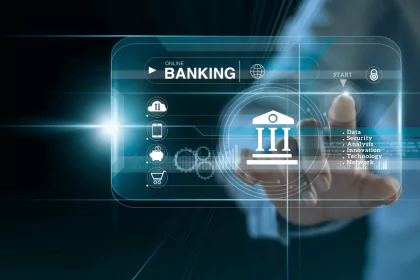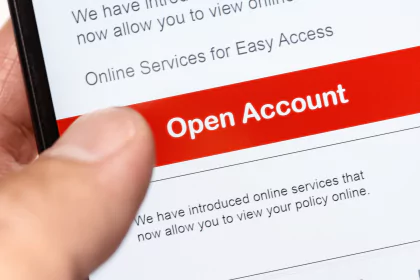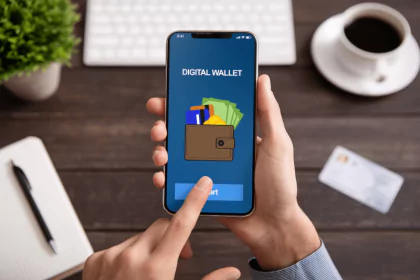In today’s digital age, online banking features have become an indispensable part of our financial lives. The rapid development of technology has revolutionized the way we manage our money, making banking more accessible, convenient, and efficient. This article delves into the myriad features of online banking, highlighting how they enhance the banking experience for users.
What is Online Banking?
Online banking features, also known as internet banking, enable customers to conduct financial transactions through the internet. Banks offer a wide range of services through their online platforms, from basic functions like checking account balances and transferring funds to more advanced features like applying for loans and managing investments.
The Evolution of Online Banking
Online banking has come a long way since its inception. Initially, it was limited to basic functions such as balance inquiries and fund transfers. Today, it encompasses a wide array of services that cater to the diverse needs of customers.
Early Days
In the early 1990s, banks began experimenting with online banking services. These early platforms were rudimentary, offering limited functionality and requiring customers to use dial-up connections to access their accounts. Despite these limitations, the convenience of online banking quickly gained popularity.
Modern Online Banking
With advancements in technology and the proliferation of the internet, online banking has evolved significantly. Modern online banking platforms are robust, user-friendly, and secure. They offer a wide range of features, including mobile banking, bill payments, and investment management, making it easier than ever for customers to manage their finances.
Key Features of Online Banking
Account Management
One of the most fundamental online banking features is account management. Customers can view their account balances, transaction history, and statements with just a few clicks. This real-time access to account information empowers customers to stay on top of their finances and make informed decisions.
Fund Transfers
Online banking makes transferring funds between accounts seamless. Whether it’s transferring money between a checking and savings account or sending money to a friend or family member, online banking provides a quick and convenient way to move funds.
Bill Payments
Gone are the days of writing checks and mailing bill payments. Online banking allows customers to pay bills electronically, either as one-time payments or through automated recurring payments. This feature saves time and ensures that bills are paid on time, avoiding late fees and penalties.
Mobile Banking
With the rise of smartphones, mobile banking has become an integral part of online banking features. Mobile banking apps provide the same functionality as online banking platforms, with the added convenience of being accessible from anywhere. Customers can check their balances, transfer funds, pay bills, and even deposit checks using their mobile devices.
Security Features
Security is a top priority for online banking. Banks employ a variety of measures to protect customer information and prevent fraud. These include encryption, multi-factor authentication, and biometric verification. Customers can rest assured that their financial information is safe and secure.
Customer Support
Online banking platforms often include robust customer support features. These can range from live chat and email support to comprehensive FAQs and tutorials. This ensures that customers can get the help they need quickly and easily.
Investment Services
Many online banking platforms offer investment services, allowing customers to manage their investment portfolios alongside their traditional banking accounts. Customers can buy and sell stocks, bonds, and mutual funds, and access a variety of financial planning tools.
Personal Finance Management
Online banking platforms often include personal finance management tools. These tools help customers track their spending, create budgets, and set financial goals. By providing insights into their financial habits, these tools empower customers to take control of their finances.
Loan Applications
Applying for loans has never been easier thanks to online banking. Customers can apply for personal loans, auto loans, and mortgages through their bank’s online platform. The application process is streamlined and convenient, often resulting in faster approval times.
Alerts and Notifications
Online banking platforms allow customers to set up alerts and notifications for various account activities. Customers can receive alerts for low balances, large transactions, and upcoming bill payments. These notifications help customers stay informed and avoid potential issues.
Digital Wallet Integration
Digital wallets, such as Apple Pay, Google Wallet, and PayPal, have become increasingly popular. Many banks now offer integration with these digital wallets, allowing customers to make payments and transfer funds with ease.
Benefits of Online Banking
Convenience
The most significant benefit of online banking is convenience. Customers can access their accounts and perform transactions from anywhere, at any time. This eliminates the need to visit a physical bank branch, saving time and effort.
Cost Savings
Online banking can save customers money. Many banks offer lower fees and better interest rates for online accounts. Additionally, the ability to pay bills and transfer funds electronically can reduce or eliminate the need for checks and postage.
Enhanced Security
Online banking platforms are designed with security in mind. Banks invest heavily in security measures to protect customer information and prevent fraud. Features like encryption, multi-factor authentication, and biometric verification ensure that customer accounts are secure.
Financial Insights
Online banking provides customers with valuable insights into their financial habits. Personal finance management tools help customers track their spending, create budgets, and set financial goals. This information can be invaluable for making informed financial decisions.

Accessibility
Online banking makes financial services more accessible. Customers with physical disabilities or those who live in remote areas can access their accounts and perform transactions without the need to visit a bank branch. This inclusivity ensures that everyone has access to essential banking services.
Challenges of Online Banking
Security Concerns
While online banking is generally secure, it is not without risks. Cybercriminals constantly devise new ways to exploit vulnerabilities and steal customer information. Banks must remain vigilant and continually update their security measures to stay ahead of these threats.
Technical Issues
Technical issues can occasionally disrupt online banking services. Website or app outages, slow load times, and compatibility issues can frustrate customers and hinder their ability to manage their finances. Banks must invest in reliable technology and provide timely support to address these issues.
Digital Divide
Not everyone has access to the internet or the necessary technology to use online banking. The digital divide can prevent some customers from taking advantage of online banking services. Banks must find ways to bridge this gap and ensure that all customers have access to essential financial services.
The Future of Online Banking
Artificial Intelligence and Machine Learning
Artificial intelligence (AI) and machine learning are poised to revolutionize online banking. These technologies can enhance security, improve customer service, and provide personalized financial advice. AI-powered chatbots, for example, can assist customers with routine inquiries and transactions, freeing up human representatives to handle more complex issues.
Blockchain Technology
Blockchain technology has the power to revolutionize online banking by boosting security and transparency. It offers a secure, decentralized ledger for financial transactions, which helps lower the risk of fraud and enhances the efficiency of payment processing.
Biometric Authentication
Biometric authentication, such as fingerprint and facial recognition, is becoming increasingly common in online banking. These technologies provide a higher level of security than traditional passwords and are more convenient for customers.
Open Banking
Open banking is an emerging trend that allows third-party developers to build applications and services around a bank’s data. This can lead to innovative new services and more personalized banking experiences for customers. Open banking also promotes competition, driving banks to improve their offerings and provide better value to customers.
Enhanced Mobile Banking
As mobile technology continues to advance, mobile banking will become even more powerful and versatile. Future mobile banking apps may include features like augmented reality (AR) for ATM and branch locator services, voice-activated transactions, and advanced personal finance management tools.
Digital Currencies
Digital currencies, such as Bitcoin and central bank digital currencies (CBDCs), are gaining traction. Banks are exploring ways to integrate these digital currencies into their online banking platforms, providing customers with new payment options and investment opportunities.
Conclusion
Online banking has revolutionized the way we manage our finances, offering unparalleled convenience, security, and accessibility. As technology continues to evolve, online banking will only become more powerful and versatile. By staying informed about the latest features and trends, customers can make the most of their online banking experience.
Online banking platforms, like those offered by major banks, provide a comprehensive suite of services that cater to the diverse needs of customers. From account management and fund transfers to investment services and personal finance tools, online banking has something for everyone.
For more information on the online banking features of these top banks, you can visit their official websites:
For insights into digital wallets and how they integrate with online banking, check out this article on digital wallets.
FAQ — Popular Questions and Answers
Online banking is generally very secure, employing measures like encryption, multi-factor authentication, and biometric verification to protect customer information.
Yes, online banking allows you to pay bills electronically, either as one-time payments or through automated recurring payments.
Mobile banking apps offer features such as balance checks, fund transfers, bill payments, and even check deposits using your mobile device.
To set up online banking, visit your bank’s website, register for an account, and follow the instructions to link your existing bank accounts to the online platform.
Many banks offer online banking services with no additional fees. However, it’s important to check with your bank to understand any potential costs.












